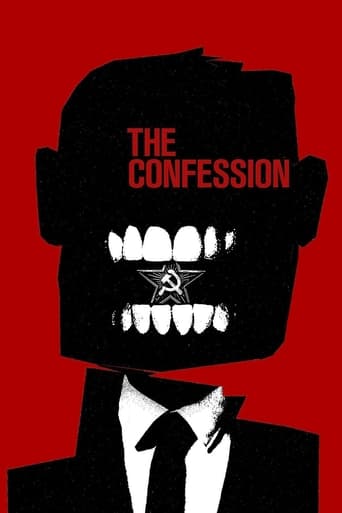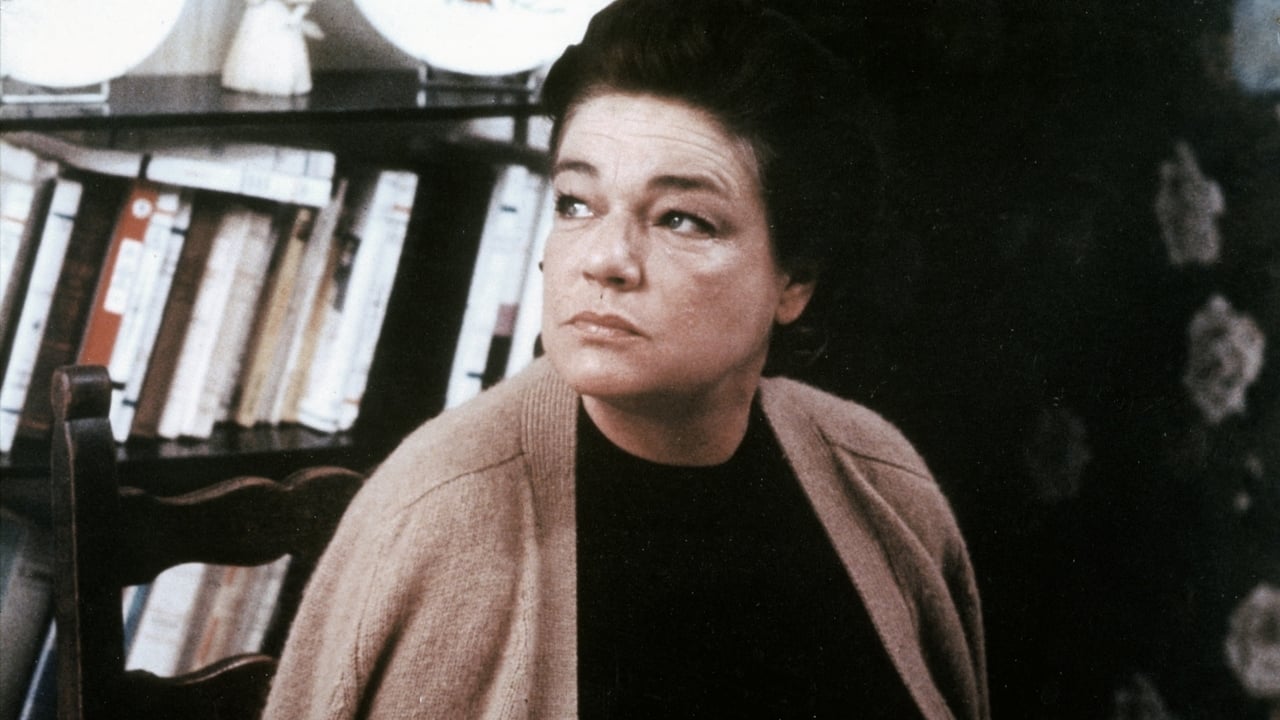gavin6942
Anton Ludvik, aka Gerard, is vice-minister of Foreign Affairs of Czechoslovakia. He realizes he is watched and followed. One day, he is arrested and put into jail, in solitary confinement. Will be shown the mental tortures during the investigations and how a faithful top-ranking civil servant is made to confess to treason.A French political thriller based on a real story in Czechoslovakia? Wow! This actually makes a lot of sense. The Czech people do not have many stories told about them, but they do happen to live in an unfortunate area, sandwiched between Germany and Russia. And, as we know, throughout the 20th Century, those two nations liked to assert their influence on the neighbors.It is so great to see the story here of a man who stood against the Nazis now having to fight back against the politicians he helped support (sort of).
Rodrigo Amaro
In "L'Aveau" Costa-Gavras breaks at once and for all in defending one political ideology and attacking the other, like he did in "Z". This time he goes to show that both sides have their problematic aspects, they all make severe mistakes, we can't know which was good and which was bad. The bottom of line is that both with capitalism and communism someone decent always had to pay the prize for trying to do the right thing.Yves Montand plays the victim once again (murdered in "Z" and arrested by militants in "Etat de Siege" closing the combative Gavras political trilogy, "Missing" goes as an addendum, made years later after those films), a Czech and Communist vice-minister who'll be arrested and suffer on the hands of other members of the party who consider him a traitor of their cause. They believe he was a spy who had connections with American officials and all they want is a full confession of his crimes, which never existed, never happened (and they know that!), using of mental and physical methods to achieve results with the prisoner. The confession extraction is the real purpose to be visualized in here, exploited in painful and realistic details, methods used by the Communist - I recalled some of the descriptions made by Soljenitsin in "Gulag Archipelag", released on the same year as "L'Aveau" - like privation of sleep, keep marching at all times inside of the cell, and many other horrible techniques they used on prisoners during months and years if possible in order to break their resistance and confess everything, real or not.We have to give plenty of credit to Montand during those scenes, which are not few. Definitely not an easy shooting to make, you feel his exhaustion, weakening each frame goes by, the visible weight-loss, he went to extremes very few actors can reach and no, this isn't much method acting, one does not go in training method for those scenes, he just put himself there at each sequence. It doesn't go well for the character and it sure does not go well with the audience. It's hard to watch since the brutality and the frequency everything happens is so repetitive as if Gavras was trying to make the people in the audience to break out from the movie when in fact he's just being real with the events, causing some stir in us to the point where we ask ourselves how come this guy is not guilty of treason. In this manifest against the totalitarianism, the writer and director seemed to not making of the Socialists the almost heroes they were in "Z", while investigating the assassination of the popular leader. Their destructive paranoia, the unsubstantial suspicion they had with their own members, it's all a smoke curtain to hide the flaws of bigger people working on the Party and to hide the failures of a deeply flawed and inconsistent regime. Authentic, honorable and well-acted in all possible ways, just not much easy to endure. But truthful, powerful, haunting and rewarding nonetheless. 9/10
writers_reign
More often than not it's disappointing when an elusive film finally turns up and often the disappointment is in direct proportion to how badly one has looked forward to seeing it but I'm delighted to say that this one lived up to my expectations. Bowing as I do to no one in my love, respect and admiration for Yves Montand both as singer and actor I have, not unnaturally read all the books by and about him, bought all the albums but not, alas, seen all the films and of those elusive titles this one was the most sought-after. I knew by definition of Montand's strong Left-wing convictions - the son of an active Communist with a brother equally active and eventually high-ranking in the party -which if anything intensified after his marriage to Simone Signoret so that their life together was punctuated not only by concerts and film making but also by pro-Communist crusading (over the years they signed literally dozens of petitions)yet despite that background he agreed to make a film based on the real-life experience of Artur London, a high-ranking Communist in what was then Czechoslovakia, who, in a Kafkaesque nightmare was arrested and tortured - both mentally and physically - by fellow Communists with the end result of obtaining a confession (L'Aveu is, of course, French for confession) that he had betrayed the party. I'm about as far from a political animal as you can get whilst conversely I'm the nearest thing to Montand-For-President and that, pretty much is how I approached the film. Montand is fantastic. Let me put it another way: Montand is FANTASTIC. Required to run a gamut from suspicion at one end to mental and physical exhaustion at the other he inhabits the part completely. Considering that films are shot out of sequence and over a period of several weeks or months the manner in which he not only sustains a performance but builds it piece by piece like Jacques Villeret building an Eiffel Tower of matches in Diner du Cons is masterful. As a take on the way in which the Communist mind works (or worked) it is illuminating and full of wry touches in the dialogue as when Montand, urged to confess his mythical crimes argues quite naturally that if he IS a traitor then how can they believe anything he says, if he is NOT a traitor why is he in prison. The only negative is that I saw it in a small Art House in Paris as part of a Costa-Gavros retrospection and it's unavailable on DVD. Highly recommended.
Dark_Trooper
I'll start this review by saying that although I do consider Gavras to be a very good and skillful director, at the same moment I consider him overrated by many, at least according to the films I have seen of him (Z, Mad City and Amen). However, in this film he really left me at some moments breathless! The film is set in an unnamed communist state of Eastern Europe, a satellite of the USSR. The main character had recently reached the Supreme Council of the Party by being appointed Minister. He has a rich history behind him as a communist fighter and politician. However, one morning, some guys from the secret police arrest him (and others as we later find out), throw him in a cell, try to break his will and make him confess of his unloyalty to the Party, something that he never committed though. Of course it is the Soviets who demanded his imprisonment and confession and the puppet government has to oblige.We had this film shown at the university here two weeks ago and I really couldn't understand why some guys found it "boring". It showed things that seem really barbarous to us now but they DID happen to MANY people back then. And many of them did not have the influence the character of this film had. I suppose the people who made this criticism judge a movie by how many explosions and cold jokes it has in it but that's not the point here. This movie HAD to have a slow pacing in order to show how hard it is for the days to pass in this madhouse-prison.The acting is great, especially from Yves Montand and all those actors who play the crazy communist officials :p It's thrilling to see the character's facial expressions change throughout the film showing suspicion at first before he gets arrested... then shock... then despair... and then plain stubbornness and exhaustion. It's obvious that everyone took this film very seriously and thus the great performances! Another thing that surprised me and was also mentioned by the (unfortunately only) other reviewer of this film is that it was shot in 1971. This is noticeable on its own, because it was a time that not only the Soviet Union was still strong (with Brezniev trying to show a "nicer" but also stronger face to the world) but the Communist Party in France had also great support and numbers of voters. I would like to know more about how the French audience reacted when the film was screened for the first time back then...Overall, it is a movie that I would recommend anyone watching. It is a good and graphic display of how far the demands of power can reach and the paranoid mentality of the Cold War (and it would be wise to remember that this mentality and these incidents did not only take place in the East side but in the West as well). If you find it on VHS (since I doubt that it is released on DVD) just grab it!



 AD
AD





